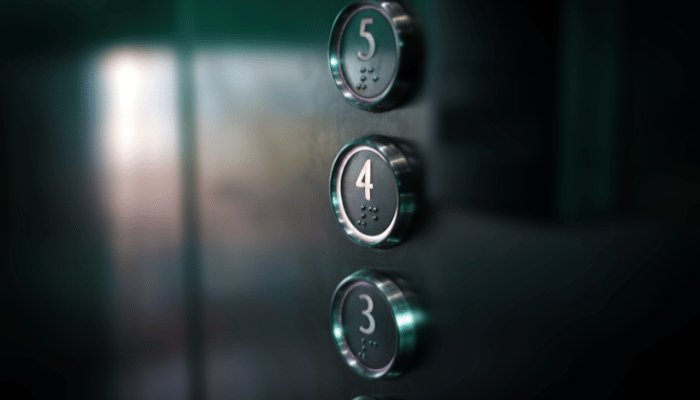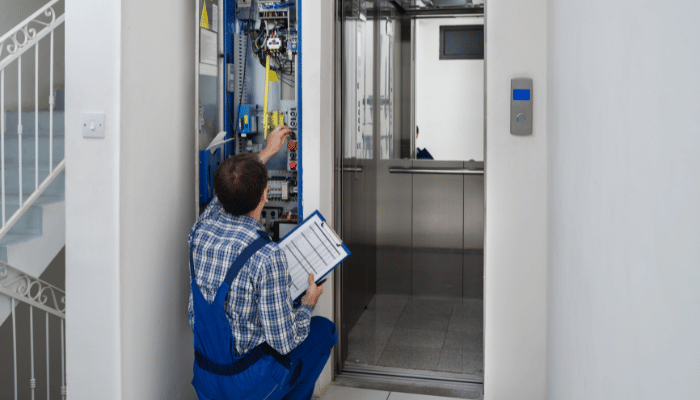
Wondering how long your home elevator will serve you reliably? Like any major home investment, understanding the lifespan of lifts for homes is crucial for planning maintenance and potential upgrades. Several factors determine how long these convenient features last, from the type of elevator to regular upkeep. Dive into our guide to discover how long do elevators last and what you can do to ensure it stays in top condition for years to come.
Factors Affecting Elevator Lifespan
The elevator life expectancy is influenced by several key factors that can affect its performance and durability over time. Understanding these factors is essential for ensuring your elevator remains reliable and efficient.
Quality of Installation
The quality of installation is crucial in determining the lifespan of a home elevator. Proper installation ensures the elevator operates smoothly and reduces the risk of mechanical issues. A professional installer should adhere to manufacturer guidelines and local codes, using high-quality materials and components. A well-installed elevator is less likely to experience problems and generally has a longer operational life.
Usage Frequency
How often you use your elevator can significantly impact its lifespan. Those with high usage, such as elevators for homes or individuals with mobility challenges, may experience more wear and tear. Conversely, elevators used infrequently may last longer but still require regular maintenance. Balancing usage with proper care helps ensure your elevator remains reliable over time.
Maintenance
Regular maintenance is essential for extending the elevator lifetime value. Scheduled inspections and servicing help detect and address minor issues before they become major problems. Maintenance tasks include checking and lubricating moving parts, inspecting cables and pulleys, and ensuring that safety features function correctly. Adhering to a routine maintenance schedule can prevent unexpected breakdowns and prolong the elevator’s lifespan.
Environmental Conditions
Environmental conditions play a significant role in the longevity of your elevator. Factors such as humidity, temperature extremes, and dust or corrosive elements exposure can affect the system’s performance and durability. Elevators installed in environments with high humidity or extreme temperatures may require more frequent inspections and maintenance. Ensuring the elevator shaft and components are protected from adverse environmental conditions can help extend the system’s lifespan.
Type of Elevator
The type of elevator you choose also impacts its lifespan. Screw and nut driven elevators, known for their robust construction and smooth operation, typically have a longer lifespan than cable-driven models. While often more space-efficient, cable-driven elevators may require more frequent maintenance due to their reliance on cables and pulleys. Understanding the differences between elevator types and selecting one suited to your needs and environment can affect long-term performance and durability.

Signs Your Elevator May Need Replacement
Knowing when to replace your home elevator is crucial for maintaining safety and efficiency. Recognizing the signs that indicate your elevator may need replacement can help you avoid costly repairs and ensure continued reliable service.
Frequent Breakdowns
If your elevator experiences frequent breakdowns or malfunctions, it may be a sign that its components are wearing out or that it’s nearing the end of its useful life. Frequent breakdowns can indicate underlying issues that may be costly and suggest that replacement is a more practical option.
Poor Performance
A decline in performance, such as slow operation, erratic movements, or unusual noises, can signal that your elevator is struggling to function properly. While some performance issues can be resolved with repairs or adjustments, consistent poor performance may indicate that the elevator’s components are outdated or failing.
Increased Repair Costs
As elevators age, repair costs can increase due to the need for more frequent servicing and replacement of worn-out parts. If repair costs are rising significantly, investing in a new elevator may be more cost-effective in the long run than continuing to repair an aging system.
Safety Concerns
Safety is paramount in elevator operation. If your elevator is exhibiting safety concerns, such as unreliable safety mechanisms or compliance issues with modern safety standards, it’s crucial to address these immediately. Outdated or malfunctioning safety features can pose risks to users and may necessitate replacement to ensure continued safe operation.
Outdated Technology
Home elevators with outdated technology may lack modern features and efficiency improvements in newer models. Upgrading to the luxury elevator with advanced technology can enhance convenience, energy efficiency, and safety, making it a worthwhile consideration if your current system is outdated.
Obsolete Parts
When elevator parts become obsolete, finding replacements can become challenging and expensive. If your elevator relies on obsolete parts that are no longer manufactured, it may be more practical to replace the system rather than struggle with the difficulties of maintaining an outdated model.
Need Elevator Replacement? Swift Lifts is Here For You!
Is your home elevator showing signs of wear? Swift Lifts specializes in replacing and upgrading domestic lifts for houses, ensuring your home stays accessible and safe. With expert installation and top-of-the-line products, we make the process seamless. Explore our range of modern, efficient elevators designed to fit any home. Visit Swift Lifts today to find the perfect solution for your needs.
FAQs
The type of home elevator affects its lifespan through its design and materials; screw and nut driven elevators tend to last longer, while cable-driven ones may need more maintenance.
You should maintain your home elevator every 6 to 12 months to ensure safe and reliable operation. Regular inspections and servicing can help prevent issues and extend the elevator’s lifespan.
Yes, regular maintenance can significantly extend the life of your home elevator by ensuring it operates efficiently and addressing issues before they become major problems.
Upgrading an old elevator can be cost-effective if it improves performance and safety, but replacement might be better if the existing system is outdated or costly to repair.
The type of home elevator affects its lifespan, with hydraulic models typically lasting longer due to their durability, while cable-driven elevators may require more frequent maintenance.
Get in Touch!










